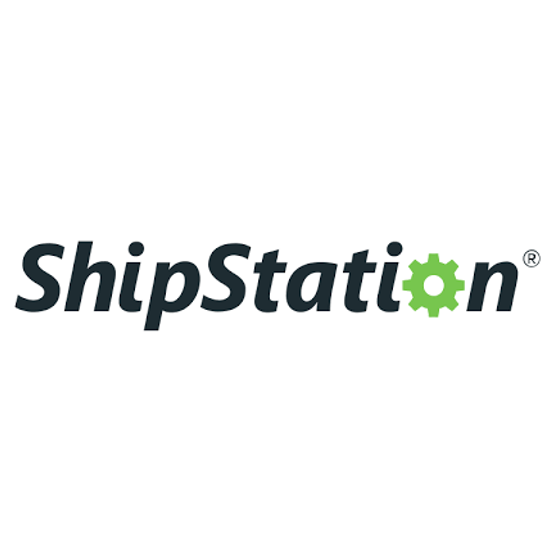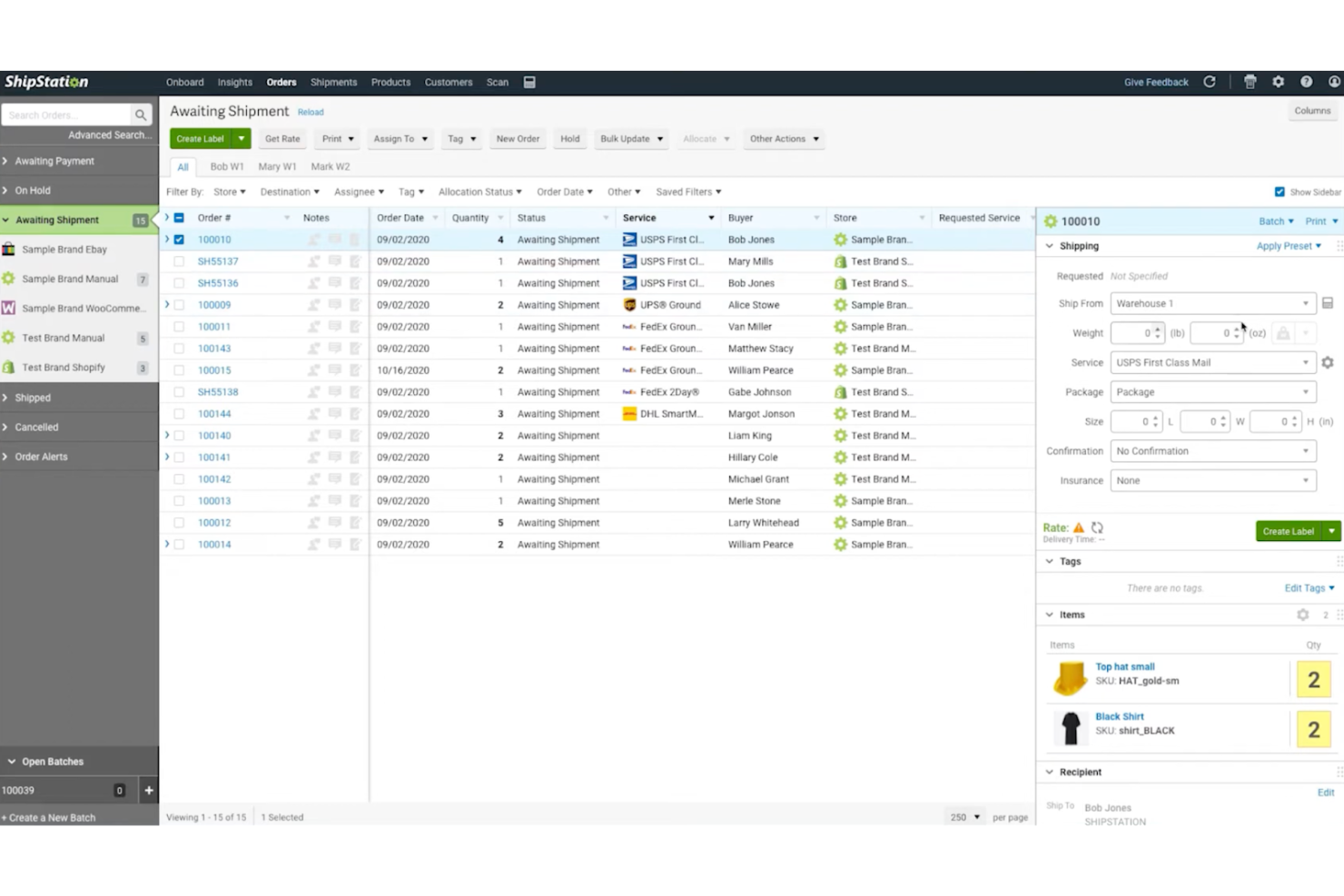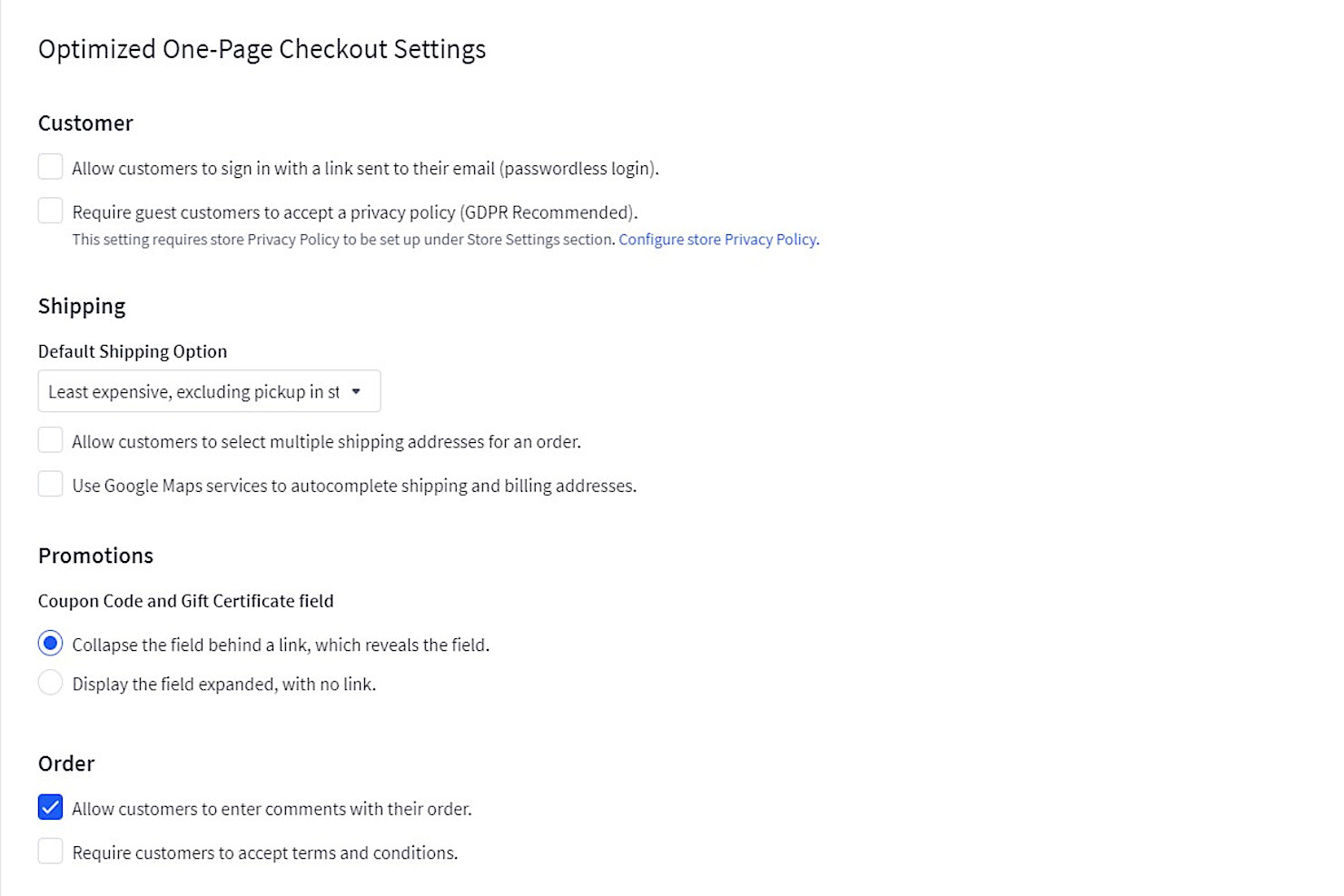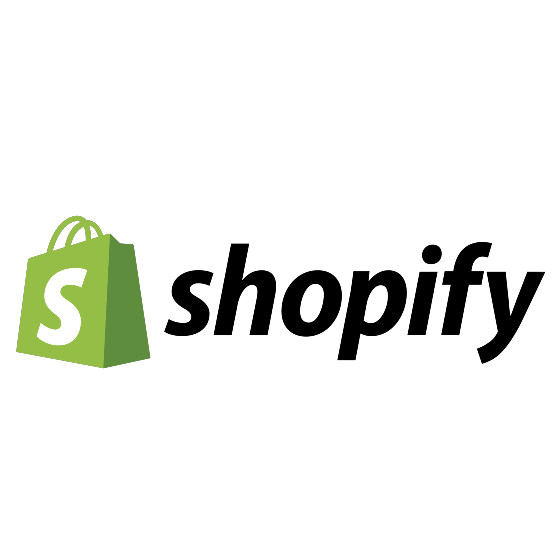10 Easiest Ecommerce Platforms List
Here's my pick of the 10 best software from the 20 tools reviewed.
Our one-on-one guidance will help you find the perfect fit.
There are seemingly countless ecommerce platform available, so figuring out which is easiest to use can be tough. You want to simplify the process of creating and running an ecommerce website, offering intuitive interfaces, easy-to-use tools for product listing, order management, and basic customization—but now need to figure out which tool is the best fit. I've got you! In this post, I make things simple, leveraging my experience as an ecommerce expert to bring you this shortlist of the easiest ecommerce platforms overall.
What is an Easy Ecommerce Platform?
Easy ecommerce platforms are a user-friendly, intuitive online system designed to simplify the process of creating and managing an online store. They are tailored for individuals or businesses, particularly those with limited technical skills, enabling them to set up a web store quickly and efficiently. These platforms typically offer drag-and-drop interfaces, pre-designed templates, and straightforward tools for product listing, payment processing, and order management.
Overview Of The 10 Easiest Ecommerce Platforms
These are my absolute top 10 favorites for the easiest ecommerce platforms. Here, I’ll go into detail about key features, integrations, pricing, and pros/cons. Plus: Keep reading for additional selections that didn’t quite make the top 10 but are still worthy of consideration.
Best for simplifying the shipping process across multiple ecommerce platforms
ShipStation is a web-based shipping solution that streamlines the order fulfillment process for online retailers. With ShipStation, you can manage and ship your orders from all your sales channels in one place.
Why did I pick ShipStation? It's user-friendly and it's got all the features you need to get your orders out the door quickly and efficiently. Plus, it's got a great range of integrations with all the major ecommerce platforms and shipping carriers. And you can set up automation rules to speed up the shipping process. For example, you can automatically apply the correct shipping service based on the weight and dimensions of the package, or automatically print packing slips for certain types of orders. It's a real time-saver.
Another standout feature is the batch processing. You can process and print shipping labels for multiple orders at once. This is a game-changer, especially during the busy holiday season when you've got plenty of orders to ship out.
Standout features include the inventory management capabilities that come with this software. You can track your stock levels in real-time and forecast your inventory needs in the same place you manage your orders. I found this to be a convenient time-saver to keep my ecommerce operations in the same place.
Integrations include WooCommerce, BigCommerce, BigCartel, Shopify, Squarespace, Etsy, Wix, Magento, NetSuite, SAP, DHL, USPS, Canada Post, Purolator, Lumis, and dozens more.
Wix eCommerce is an all-in-one web platform that will help you create and manage your online store without any coding knowledge. It offers drag-and-drop features to help you customize your website’s design, add products, manage orders and inventory, accept payments, and promote your business.
Online merchants can choose from built-in store templates optimized for SEO and customizable with different themes, layouts, and color schemes without installing extra software or plugins. Wix eCommerce also includes multiple payment options—such as Stripe, Apple Pay, or Amazon Pay—so you can accept payments from customers worldwide quickly and securely.
Their inventory management capabilities make it easy to track your orders in real time and manage product availability on all your websites. You can also take advantage of integrated shipping solutions, which allow you to offer fast shipping options worldwide at discounted rates.
The platform includes powerful analytics tools to give you insights into how your store is performing regarding sales and traffic. This can help you identify opportunities for improvement and monitor trends over time so you can make informed decisions about where best to invest your resources. Furthermore, Wix eCommerce provides detailed reporting capabilities so you can measure the effectiveness of their marketing campaigns in real time.
The software includes powerful tools like marketing automation, analytics, customer support tools, email campaigns, loyalty programs, and integration with third-party services like PayPal or Shopify. With these tools, entrepreneurs can easily create a unique online store to attract customers and increase sales. Other features include various marketing tools to help you promote your products more effectively, such as automated email campaigns, social media promotion tools, digital coupons and discounts, and SEO features.
Integrations include 123FormBuilder, AdScale, AfterShip, Cart2Cart, Dropbox, EasyShip, Eventbrite, Google Drive, Importify, JivoChat, Klaviyo, Mailchimp, Meta for Business, Privy, and SoundCloud.
Pricing for Wix eCommerce starts at $20/month. A 14-day free trial is also available.
Unlike other ecommerce platforms, BigCommerce does not limit plans based on staff amounts or product amounts. In fact, the bandwidth of BigCommerce plans are based on how much you can sell from their platforms. So, each plan allows you to upload unlimited products.
This ability to add an unlimited number of products gives a lot of legroom for an ecommerce business to truly flourish. Apart from that, there are multiple, easy-to-apply features like customer segmentation, abandoned cart recovery, payment processing (with 65 payment gateways), and more. For site design, BigCommerce has an intuitive visual editor that lets you change your site’s look and feel without any coding involved.
Being a leading player in the ecommerce market, BigCommerce integrates with 100s of powerful enterprise integrations like ActiveCampaign, Webgility, Avalara Tax, Stripe, and more. Also, with BigCommerce, you can sell directly on marketplaces like Amazon and eBay. Inventory management features include order tracking, stock level reports, pricing adjustments, and insights on purchasing trends.
The analytics feature helps you track insights like your biggest customers, average order value, net sales, refunds, and other data that will help you scale your product fast.
BigCommerce has a WordPress Plugin that can be a great fit for WordPress users looking to sell products on their platform. The support team is available via email and phone. In addition, there is a knowledge base and a community of ecommerce entrepreneurs supporting each other.
The BigCommerce standard plan starts at $29.95 per month with the option for a 1-month free trial.
WP Engine is primarily a web hosting platform for your blogging needs, but its Genesis pro subscription plan packs a powerful statement when it comes to ecommerce functionality. The Genesis framework comes with built-in SEO-optimized features curated by experts.
The Gutenberg-ready site builder can be used to implement reusable modules for design and content. You can also freely change headers, logos, or any other aspect of your site to match your ecommerce store aesthetics. Also, there’s an open-source community of developers backing the product with auditing and security updates.
The community also provides useful integrations, plugins, add-ons, and extensions. It integrates with WooCommerce and other major ecommerce apps.
The pricing for WP Engine’s startup plan starts at $25 per month.
Shopify
Best ecommerce platform for stability and always-on availability
If ecommerce platforms were the mob, Shopify would be the boss of all bosses. The tool is easily the most popular ecommerce platform out there. Shopify comes with a professional storefront, a payment processor, and a Shopify POS application. The product management features let you organize items/products into collections or use smart collections to create interesting groupings, such as items less than $50, item bundles, and other parameter-focused groupings.
These features can be very handy marketing tools for your product. Shopify lets you execute important inventory management activities like exporting or importing inventory through CSV files, tracking and adjusting inventory, and hiding out of stock products. Shopify’s analytics give you insights like transaction data, site speed, store visits, and more.
In terms of extensions and compatibility, Shopify integrates with 3219+ apps covering everything from sales to merchandising to finances. It works out of the box with Amazon, Oberlo, Stocky, Facebook Messenger, Apple Business Chat, and more.
Shopify is used by more than 90k retailers in over 100 countries. The tool offers support via chat and email. It has an extensive knowledge base and an active community on Shopify forums dedicated to the product.
Shopify costs from $29/month when paying monthly, with 2.9% + $0.30/transaction. Shopify offers a 3-day free trial from their website. If you shop around, you can find affiliates who offer 14-day free trials.
Best ecommerce platform for first-time entrepreneurs to test their ecommerce MVPs
PrestaShop is an open-source ecommerce platform that’s free to use and allows you to edit software code to suit your custom needs. The tool covers all the basics like customizing your store, managing products, processing payments, and more.
PrestaShop is free to use and perfect for MVP testing. The product’s advanced stock management system allows it to use multiple sources of inventory and manage them in a single place. The analytics and statistics add-ons cover all the main data points of your ecommerce store.
PrestaShop has over 2000+ design theme add-ons. Use it to design an ecommerce site that matches your brand tone and design language.
Though PrestaShop is free to use, add-ons are priced usually between $30 to $50. A major drawback is that the support feature is not free, but that is expected from a freemium service.
The basic support plan is priced at around $345.
Volusion is the ecommerce equivalent of a James Bond Aston Martin car — it is loaded with useful and life-saving features for online store owners. Now let me be Q (one more James Bond reference) and explain what it does.
Volusion’s all-in-one ecommerce solution helps SMBs create their first professional ecommerce site. It comes with built-in features covering every aspect of launching, operating, and growing an ecommerce business. Volusion’s inventory grid feature allows it to manage the price and status of child products. What are child products? If you sell a pair of jeans, they might be available in different colors and sizes. Here jeans are the parent product, and the variations are child products.
Volusion also has the feature to bulk upload products. The analytics features include options to check gross revenue, revenue by day, total orders received, traffic performance, cart conversions, and more.
Volusion also includes site creation features like mobile responsiveness, product pages, and search functionality/search engine, as well as functional features like secure checkout and a dropshipping integration. Their SEO tools and analytics come in handy for optimization.
Volusion integrates with all the major payment gateways (PayPal, Stripe, etc.) and accepts all major credit cards. The product allows full customization to create a consistent experience throughout the store and checkout experience.
Volusion pricing starts at $29 per month with an option for a free trial. Support is available 24/7 by phone, email, and chat. There is also a comprehensive knowledge base available.
ERP Gold
Best inventory management SaaS platform for wholesale manufacturing organizations
ERP Gold helps small businesses and wholesale manufacturing organizations with a dead-simple way to list, manage, and ship inventory when selling through online marketplaces like Amazon, Walmart, Shopify, eBay, or any other platform. ERP Gold allows product listing to all these multiple marketplaces simultaneously, all from one single platform.
This makes managing inventory a breeze. Also, it lets you track inventory through a unique serial number. ERP Gold works great with apps like Salesforce, Shopify, PayPal, Facebook, and more. Support is available 24/7 by email, phone, and chat.
ERP Gold starts at $49 per month with a 14-day free trial.
WooCommerce is a fluid, flexible, and adaptable ecommerce platform that allows you to sell physical goods, digital products, and services. Their free option includes a storefront, a WordPress theme, 5 payment gateways, product listing management, a shipping rates calculator, gift cards options, and more. Though this alone will cover everything you need to start an ecommerce business, the real fun is in the integrations and customizations.
You can choose from many plugins, themes, and extensions to create an application based on your requirements. You can also adjust the look and feel of the site to match your brand’s design language and tonality.
WooCommerce also integrates with a variety of utility tools like Shippo, QuickBooks, and more. The analytics dashboard gives you insights on gross sales, average order value, net sales, refunds, and other critical insights.
Currently, WooCommerce is used by more than 30% of ecommerce sellers.
WooCommerce itself is a free ecommerce platform but has additional costs for themes ($59 approx) and plugins ($25 each).
Wix comes with 500 beautiful templates that you can customize with a drag-and-drop editor to create an awesome-looking ecommerce platform. The coolest part of Wix is the intuitive Artificial Design Intelligence or ADI, which designs a unique website for you based on a few simple questions about your use-case.
For people with no technical experience, this is a great tool. For product listings, Wix lets you group your products into collections. This helps customers to find your products and see related products that might interest them.
The dashboard is well organized. Wix integrates with apps like QuickBooks, MailChimp, and more.
Wix’s ecommerce and business plans start at $23 per month.
The Easiest Ecommerce Platforms Summary
| Tools | Price | |
|---|---|---|
| ShipStation | From $9.99/month | Website |
| Wix eCommerce | From $16/month. | Website |
| BigCommerce | From $29/month and 2.59% + $0.49/transaction | Website |
| WP Engine | From $25/month | Website |
| Shopify | From $29/month (billed annually) | Website |
| PrestaShop | No price details | Website |
| Volusion | From $31.50/month. | Website |
| ERP Gold | From $49 per month | Website |
| WooCommerce | Free to use. | Website |
| Wix | From $16/month (billed annually) | Website |

Compare Software Specs Side by Side
Use our comparison chart to review and evaluate software specs side-by-side.
Compare SoftwareOther Easy Ecommerce Platform Options
Here are a few more tools that did not make the top list but might be useful if you haven’t found what you’re looking for. I’ve tagged each with a best use case to help your selection process from here.
- GoDaddy
Best easy-to-use ecommerce platform for small businesses
- ShipEngine
Best for easy multi-carrier integrations
- Lightspeed eCom
Best for a free, easy to use ecommerce platform
- Weebly
Best ecommerce platform for filtered product search
- Stock Konnect
Best for managing multi-channel listings and orders
- Clever Ecommerce
Best for Google Ads campaign automation
- AGC Ecommerce
Best for solo entrepreneurs selling their first product online
- Salesoar
Best for advertising strategy automation
- Nomad
Best for unique customization for small to mid-scale distributors
How I Picked the Easiest Ecommerce Platforms
To craft this list of the easiest ecommerce platforms, I first gathered ecommerce platforms with high user reviews as well as big names in the industry. I used my own experiences with these platforms as well as online insights from industry experts to carve my list into a top 10 with bonus additional selections. These are the selection criteria that I followed to hone my list of the top easiest ecommerce platforms:
Key Features
These are the key features I look for when evaluating easy ecommerce software for this list.
- Product Management: Allows merchants to list, categorize, and manage their product inventory with details like images, descriptions, and prices.
- Shopping Cart: Enables customers to select and store products they wish to purchase before proceeding to checkout.
- Payment Processing: Integrates with various payment gateways to facilitate secure transactions, including credit card processing, digital wallets, and other payment methods.
- Order Management: Helps merchants track and manage customer orders, from placement to shipping and delivery.
- Customer Management: Maintains a database of customer information, purchase history, and preferences.
- Responsive Design: Ensures the online store is optimized for viewing on various devices, including desktops, tablets, and smartphones.
- Search Functionality: Allows customers to easily search for products within the online store.
- Security Features: Provides SSL certificates, data encryption, and other security measures to protect both merchant and customer data.
- Marketing and SEO Tools: Offers features to optimize the store for search engines, run promotional campaigns, and integrate with social media platforms.
- Reporting and Analytics: Provides insights into sales, traffic, and customer behavior to help merchants make informed business decisions.
- Multi-channel Selling: Enables selling on various platforms, such as social media, marketplaces, and physical stores.
- Shipping and Tax Management: Automates the calculation of shipping costs and taxes based on customer location and preferences.
- Customization and Integration: Allows for the customization of the store's design and functionality, and integrates with third-party apps and services.
- User Reviews and Ratings: Lets customers leave feedback, reviews, and ratings for products, enhancing trust and credibility.
- Multilingual and Multi-currency Support: Facilitates selling to a global audience by supporting multiple languages and currencies.
Usability
This was about 80% of my selection criteria. Yes, other stuff is nice to have but this list is specifically talking about ecommerce platforms that are easiest to use. When I think about "easy" I mean clean/intuitive interface, no/low code web design, drag-and-drop elements, pre-made themes, tutorials/wiki, and customer service support.
Software Integrations
Is it easy to connect with other tools? Any pre-built integrations or APIs? Is it easy to connect with social platforms and other marketplaces? There are a variety of ecommerce apps out there designed to plug into your website, so I'm looking for compatibility with most or many of them.
People Also Ask
Before we conclude, I want to discuss some of the most frequently asked questions related to the easiest ecommerce platforms.
What is an ecommerce platform?
What ecommerce platform is best for a small business?
Which ecommerce platform has the lowest fees?
Other Ecommerce Platform Reviews
Here are some similar ecommerce platform reviews I've put together in case you still haven't found what you're looking for. You can start with the overall best ecommerce platforms, which contain a little bit of everything ranked in an ultimate list.
Ecommerce Platforms by Business Type
- SaaS Ecommerce Platforms
- B2B Ecommerce Platforms
- Ecommerce Marketplace Platforms
- International Ecommerce Platforms
Ecommerce Platforms by Need
- Headless Ecommerce Platforms
- Omnichannel Commerce Platforms
- Social Commerce Platforms
- Hosted Ecommerce Platforms
- Ecommerce Platforms In Canada
Conclusion
Every ecommerce seller has to start somewhere and an easy ecommerce platform can get you up and running quickly and hassle-free. When evaluating the easiest ecommerce platforms, think long term: Will this software support me in 2, 5, 10+ years? Can it grow with my business and support future commerce needs? These are the things that will make your ecommerce strategy successful in the long run. Good luck and get selling!
To get the latest updates on other smart ecommerce tools and tips from top ecommerce experts, subscribe to The Ecomm manager newsletter.




















